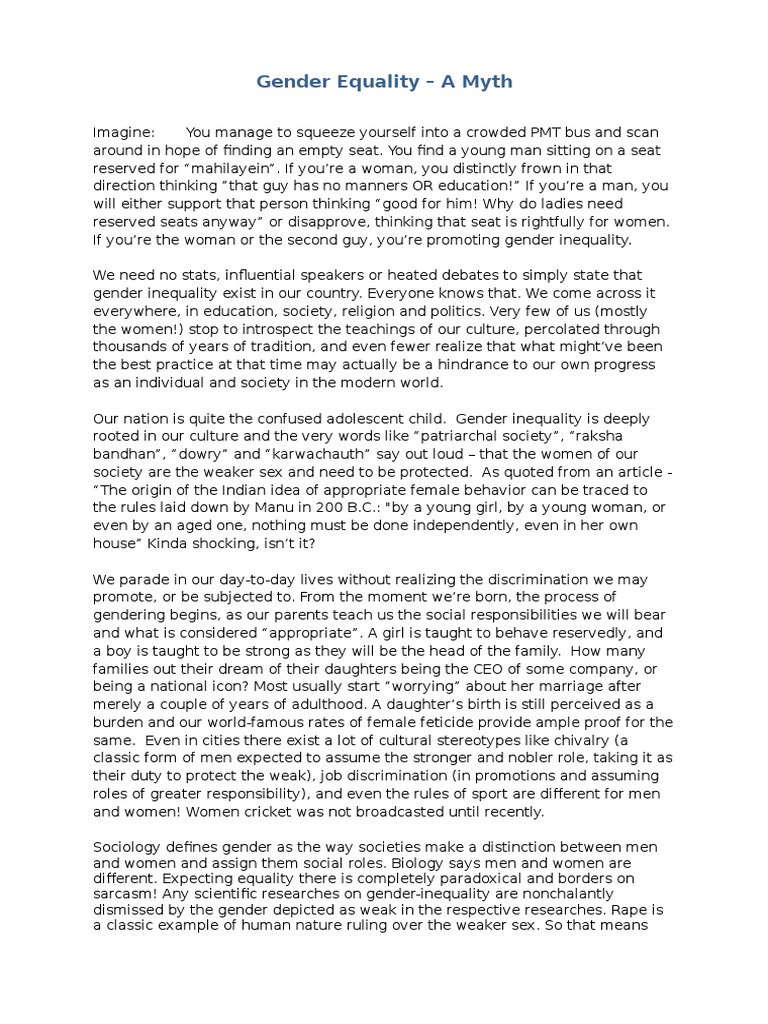Gender equality represents not just a fundamental human right, but also a vital component for the advancement of society as a whole. Within the framework of Bahá’í teachings, gender equality is portrayed as a truth deeply embedded in the very fabric of the spirit. This exploration will outline various aspects of gender equality as articulated by the Bahá’í Faith, examining its theological underpinnings, social implications, and practical initiatives. By delving into these core tenets, readers can appreciate the depth and breadth of this imperative principle.
The Bahá’í perspective on gender equality emerges prominently from a foundational belief in the oneness of humanity. It posits that all individuals, regardless of their gender, possess an equal worth in the eyes of God. This theological assertion is rooted in the notion that while men and women exhibit different characteristics, their contributions to society ought not to be diminished or overshadowed by societal biases. Hence, the Bahá’í teachings advocate that true gender equality is not merely an ideal to be aspired to, but a requisite for spiritual and social evolution.
The concept of the inherent equality of men and women doesn’t only reside in abstract principles. The Bahá’í teachings eloquently cite historical injustices faced by women as a catalyst for the ongoing quest for equality. As history reflects, the subjugation of women has not only stifled individual potential but has also deprived society of their invaluable contributions. It is argued that in advancing gender equality, societies will harness the collective capabilities of both genders, ultimately leading to a more harmonious and prosperous world.
One of the paramount declarations of the Bahá’í Faith is that gender equality is essential for the establishment of global peace. The underlying rationale rests on the premise that when men and women collaborate equally, they facilitate a more balanced decision-making process that embodies compassion, understanding, and justice. This synergy can engender political stability and mitigate conflict, thus contributing to a more peaceful existence.
In terms of practical implications, the Bahá’í teachings encourage the education of women and girls as a pivotal avenue for achieving gender parity. Education serves as a powerful tool, rendering individuals better equipped to contribute meaningfully to their communities. The upliftment of women through education does not solely benefit the individual; it cultivates a ripple effect throughout society. Educated women are more likely to advocate for their rights and those of others, fostering an environment of equality and empowerment.
Another significant aspect encompasses the role of men in advancing gender equality. Bahá’í teachings emphasize the responsibility of men to support and champion the cause of women. This active participation is essential; it dismantles the notion that gender equality is solely a women’s issue. Instead, it frames the topic as a collective societal challenge, necessitating engagement from all sectors. Men are encouraged to take a stand against gender discrimination and to foster a culture that respects and acknowledges the capabilities and rights of women.
Moreover, the Bahá’í Writings express an unequivocal condemnation of violence against women as an affront to God’s creation. Such denunciations are vital and reinforce the Faith’s commitment to creating a gender-balanced society. By addressing the roots of violence and gender-based discrimination, Bahá’í teachings aim not only to promote gender equality in theory but also in practice, advocating for laws and societal norms that protect and empower women.
In the realm of social justice, the Bahá’í Faith emphasizes the importance of gender equality as an essential element of a just society. It implores individuals and communities to engage in introspection concerning their own biases and assumptions. Embracing diversity in gender can catalyze innovative solutions to social problems, fostering economic and social development. Therefore, actively promoting gender equality is positioned not as an option but as an imperative for global advancement.
To further instill this commitment, Bahá’í communities are encouraged to create gender-sensitive programs that focus on both women’s empowerment and the active involvement of men. These initiatives can range from workshops centered on leadership and advocacy training for women to programs that educate men about the benefits and moral imperatives of gender equality. Thus, the active promotion of gender parity becomes a communal undertaking, emphasizing collective responsibility.
In conclusion, the Bahá’í teachings offer a profound and comprehensive approach to gender equality, anchoring it in the spiritual, social, and moral fabric of society. By cultivating a reverence for the equality of genders, Bahá’ís pursue an ideal that seeks to effectuate positive change. The teachings articulate that gender equality is not merely an aspiration—rather it stands as a vital truth rooted firmly in the spirit, beckoning all to engage in the transformative journey toward a more equitable world. By recognizing and enacting these principles, individuals and communities can illuminate the path toward global harmony and justice.
